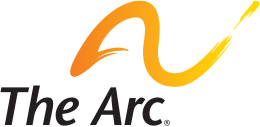ISSUE
Often, people with I/DD face greater economic inequalities than their peers without disabilities. People with I/DD also typically have not had adequate supports for full participation in financial life and decision-making, including earnings, saving, budgeting, spending, investments, and estate planning.
When people use government benefits, certain income-based and/or asset-limit eligibility policies put some people at risk of being denied for and/or losing critical supports such as Medicaid, Supplemental Security Income, and Social Security benefits if they earn or save very modest sums of money. While some savings are allowed through certain self-settled trusts and the ABLE Act which accommodate SSI and Medicaid means-testing rules, these plans do not address the needs of everyone. Thus, many people with disabilities cannot plan and save for future needs like others, contributing to ongoing economic inequalities often resulting in lifelong poverty. Public policy should encourage rather than inhibit planning for financial independence, productivity, and self-determination.
In addition, families are the largest group of providers of physical, material, and emotional supports for people with I/DD across the life course. Families incur increasing amounts
of out-of-pocket expenses due, in part, to the decreasing federal funds contributing to family support services2 in the states. Many families are restricted to a single income or underemployment due to the necessity to provide medical care or supports to their family member with I/DD. This greater reliance on family support requires families to explore and invest in a variety of financial security strategies to ensure opportunities for self-directed options and family quality of life.3
POSITION
Individuals with I/DD and their families should have equal access to economic self-security, including opportunities to save money and build financial assets to maintain or improve their basic economic and social status, strengthen their financial security, and save for retirement through education, financial literacy, employment, home ownership, and asset development.
These opportunities should include the following:
- Access to Individual Development Accounts (matched savings accounts similar to a 401(k)) that enable a person to save for education, home ownership, or one’s own business and/or employment;
- Ensuring that government assistance programs allow people to retain reasonable portions of their income for daily living expenses, and permit savings. Access to low-cost, user-friendly approaches such as ABLE accounts (savings accounts that enable eligible individuals to save for disability related expenses), for people with disabilities of all ages, for acquiring, maintaining, and expending assets while remaining eligible for publicly financed services and benefits;
- Equity with other savings programs, such as catch-up provisions and reasonable increases and limits on contributions and maximum contributions;
- Ensuring incentives in the tax code for charitable gifts and special needs trusts (a legal vehicle that manages funds for the benefit of a person who needs some assistance in daily living); and
- Ensuring that tax rates for wealth accumulation by people with disabilities (such as special needs trusts) are not excessive.
Policy reforms must allow people with I/DD to have opportunities to earn money and invest in their futures without risking the health care, benefits, and supports and services necessary to live a full life in their community.
On a personal level, people with I/DD and their families should have opportunities to learn how to manage their money and spend it wisely through such means as:
- Supports for full participation in financial planning and decision-making, including earnings, saving, budgeting, spending, investments, including tax-deferred investments like IRAs and 401(k)s, and estate planning;
- Financial literacy education throughout the school years and, particularly, contemporary practices in financial literacy curricula in high schools and other educational settings;
- Inclusive adult and higher education and consultation/coaching in communities;
- Access to free information in user-friendly print and electronic formats (similar to materials produced by the Consumer Financial Protection Bureau); and
- Training for human services support and professional staff, advocates, bank/credit union and investment personnel, and government officials (from service coordinators to Internal Revenue Service (IRS) staff ) in how best to help people enhance their assets.
Rev’d 2016
Joint statement with the American Association on Intellectual and Developmental Disabilities (AAIDD).
1“People with intellectual disability (ID)” refers to those with “significant limitations both in intellectual functioning and in adaptive behavior as expressed in conceptual, social, and practical adaptive skills. This disability originates before age 18,” as defined by the American Association on Intellectual and Developmental Disabilities (AAIDD) in its manual, Intellectual Disability: Definition, Classification, and Systems of Supports (Schalock et al., 2010), and the Diagnostic and Statistical Manual of Mental Disorders, 5th Edition (DSM-5), published by the American Psychiatric Association (APA, 2013). “People with developmental disabilities (DD)” refers to those with “a severe, chronic disability of an individual that- (i) is attributable to a mental or physical impairment or combination of mental and physical impairments; (ii) is manifested before the individual attains age 22; (iii) is likely to continue indefinitely; (iv) results in substantial functional limitations in 3 or more of the following areas of major life activity: (I) Self-care, (II) Receptive and expressive language, (III) Learning, (IV) Mobility, (V) Self-direction, (VI) Capacity for independent living, (VII) Economic self-sufficiency; and (v) reflects the individual’s need for a combination and sequence of special, interdisciplinary, or generic services, individualized supports, or other forms of assistance that are of lifelong or extended duration and are individually planned and coordinated,” as defined by the Developmental Disabilities Assistance and Bill of Rights Act 2000. In everyday language, people with ID and/or DD are frequently referred to as people with cognitive, intellectual and/or developmental disabilities.
2From The Arc and AAIDD position statement on Family Support: http://www.arcmulti.wpengine.com/who-we-are/position-statements/life-in-the-community/family-support
3Braddock, D., Hemp, R., Rizzolo, M.C., Tanis, E.S., Haffer, L., & Wu, J. (2015). The State of the States in Intellectual and Developmental Disabilities: Emerging from the Great Recession. Washington, DC: American Association on Intellectual and Developmental Disabilities (AAIDD).






